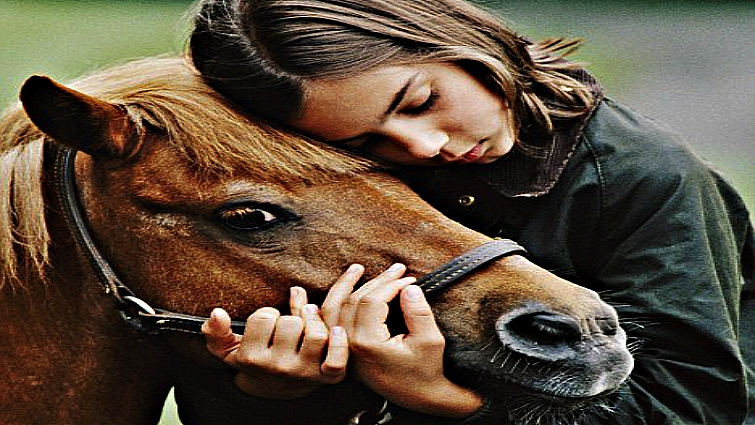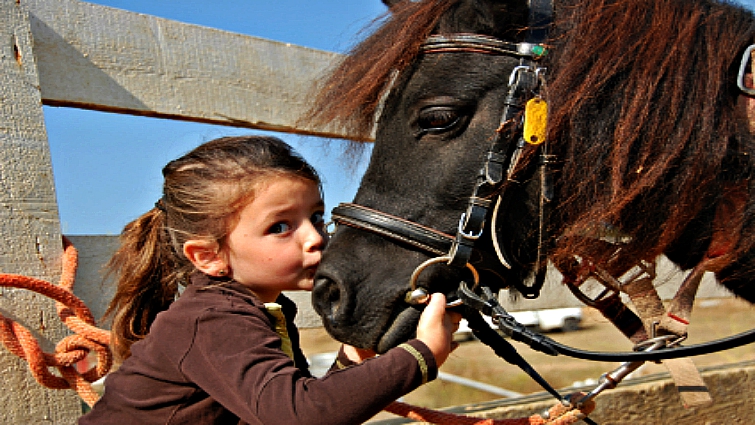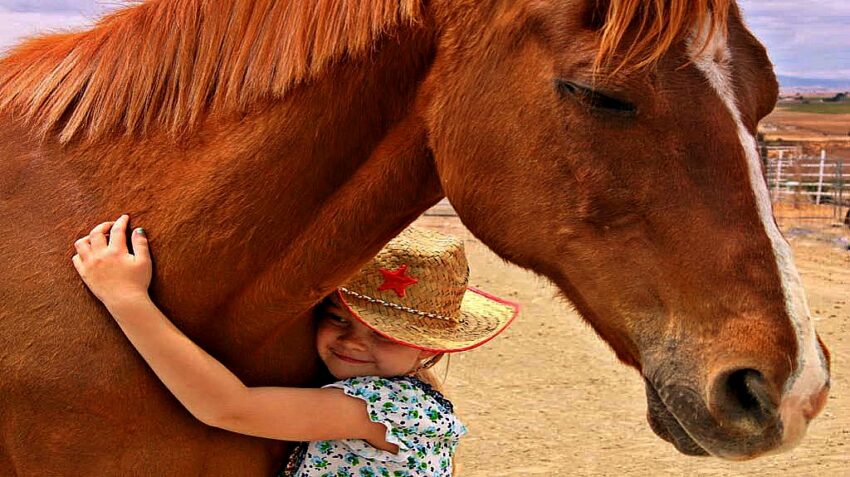We were feeding, grooming and exercising the horses on our farm one hectic Saturday morning when a car pulled into the yard. A woman wound down the window to talk to my husband, Michael. ‘We heard that you have children here to help on Saturday mornings,’ she said. ‘We wondered if you would have our daughter Sophie? ‘Her father and I are very worried. She’s 13 and has stopped talking — she hasn’t spoken a word for two years. She likes reading books about horses and we heard about you.’ Sophie stepped out of the car. She was sullen and overweight, with baggy, ill-fitting clothes and lanky, unwashed hair.

She was hunched as if there was a heavyweight pressing down on her. Something inside me knew exactly where to take her. ‘Come with me to change the dressings on a horse called Darcy,’ I told her. Darcy Day was one of 30 or so retired racehorses we had rescued and given a home to. She had come to us in a terrible state a few days earlier, saved from a neglectful owner. Bony and with her head hanging low, Darcy’s coat was matted and discolored. Her eyes were dull and streaming, her bones protruding through her coat, her hind legs swollen and oozing a dreadful yellow discharge.

Her tail was a tangled mass of wet hair and manure, her hooves long and overgrown. Darcy was clearly very distressed and had broken out in a heavy sweat. Her temperature was above normal, her hind legs were hot and swollen, and her skin had split into several places. The vet gave her painkillers, antibiotics, and anti-inflammatories, and Michael cleaned and bandaged Darcy’s hind legs as best he could, then bathed her eyes and put in eyedrops. But the poor horse seemed to have lost the will to live. However, as Sophie walked into the barn, Darcy astonished me by going straight over to her and lowering her head to be petted.

Sophie started coming every Saturday and slipped into the rhythm of work on the farm, devoting herself to Darcy, laughing and smiling with the other children, but never joining in their conversations. Meanwhile, Darcy continued to recover. Her legs healed, her coat improved, and she started to take an interest in life. They were getting better together. For retired racehorses to find a second life helping children who need another chance, that’s a winning ticket all round.

